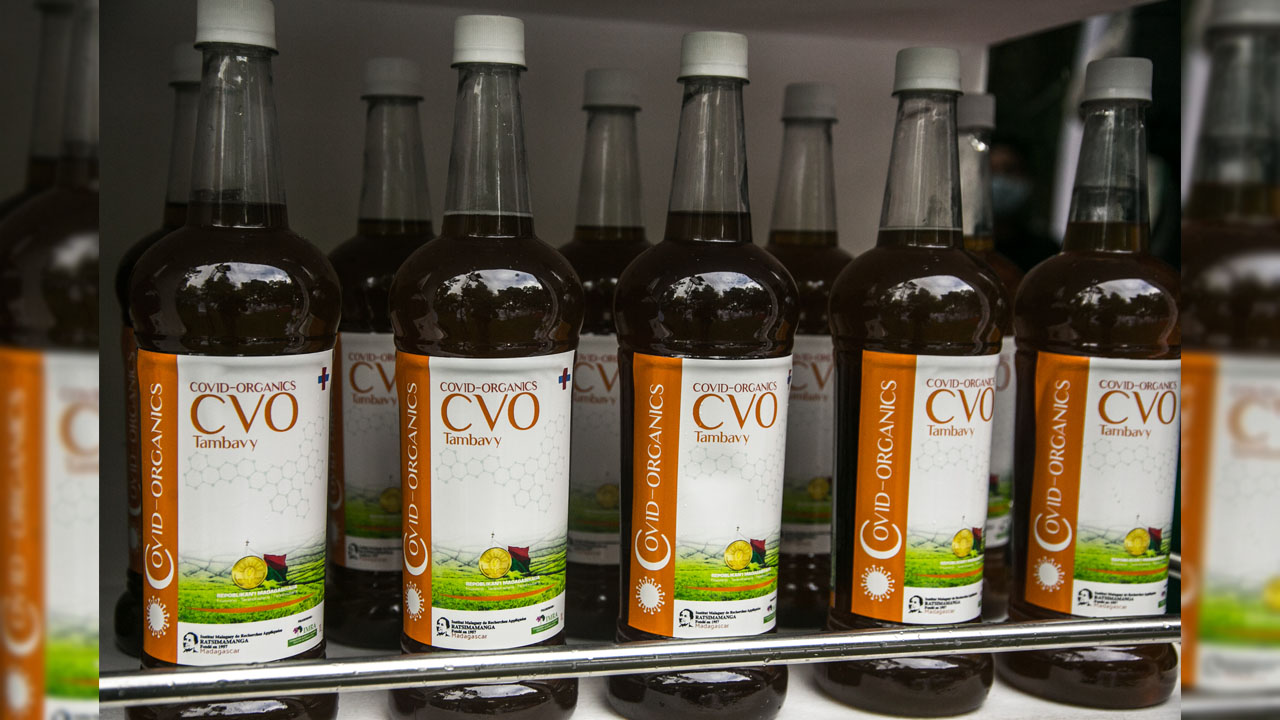Scientists at Germany’s Max Planck Institute of Colloids and Interfaces in Potsdam are among a group of researchers from Germany and Denmark collaborating with the US company ArtemiLife to explore whether the Artemisia plant can be used against the novel coronavirus.
“It is the first study in which scientists are investigating the function of these plant substances in connection with COVID-19,” the head of the study, Peter Seeberger, told DW.
The cell study will use test extracts from the Artemisia annua plant, also known as sweet wormwood, as well as derivatives isolated from the plant such as artemisinin.
An Artemisia compound has long been used as a treatment for malaria.
Madagascar’s President Andry Rajoelina touted a potion containing an Artemisia extract and other herbs as a “miracle cure” for the coronavirus.
Since then, media in Africa have plugged the drink’s potential, and several African countries have placed orders for the herbal tonic, sold under the name COVID Organics.
The director of Malagasy IMRA research institute, Charles Andrianjara, spoke vaguely of “tests on some people” when contacted by DW for details of any scientific studies on the potion, and referred to many years of experience with the concoction.
He was unable to cite any specific research proving the herbal drink’s ability to either prevent or treat COVID-19.
It’s also difficult for other scientists to test the potion as its formula is a secret – in his conversation with DW, Andrianjara said he couldn’t reveal its make-up to protect intellectual property rights.
The World Health Organization, however, warns on its website that there is “no evidence to suggest that COVID-19 can be prevented or treated with products made from Artemisia-based plant material.”
While it’s possible new treatments might come from traditional medicines, says Michel Yao from the WHO Regional Office for Africa, people should refrain from using untested remedies for coronavirus.
“There is no evidence. We do not know how these traditional medicines, which are recommended by countries or authorities, are actually effective and whether they are harmless to human health,” he told DW.
Artemisia annua is not the first malaria treatment to gain attention in the search for treatment against COVID-19. The malaria drug hydroxychloroquine has also been hyped in recent months despite little data supporting its effectiveness against coronavirus infection.
Artemisia has also been trialed “quite successfully” against diseases other than malaria, says Seeberger. Studies found the Artemisia extract was effective in inhibiting the first SARS coronavirus (SARS-CoV) that surfaced in Asia in 2002, causing a respiratory illness.
The scientists expect results by the end of May at the latest. If Artemisia is found to be effective in these trials, further tests including clinical studies on humans, would still need to take place.
“But even if the hopes for a drug based on the active ingredient against COVID-19 end in a disappointment, it would be a gain,” says Seeberger, “above all, it would bring clarity.”
While some African countries, such as Tanzania, Togo and Chad have reportedly ordered Madagascar’s potion, others – like Nigeria – are being more cautious.
Nigeria’s COVID-19 coordinator Sani Aliyu said this week at a briefing that any potential COVID-19 drug would be subjected to “stringent” evaluation, according to the Nigerian newspaper Punch.
Madagascar’s President Rajoelina continues to defend COVID Organics against criticism. In an interview with French radio stations on Monday, he said the world doesn’t want to admit “a country like Madagascar developed this formula to save the world.”
Peter Seeberger believes that Madagascar could benefit if the Artemesia extracts prove effective in the Max Planck study and subsequent clinical tests.
“Already today, around 10% of the artemisinin requirement for malaria drugs is produced in Madagascar,” said Seeberger.
It could therefore be attractive for Madagascar to produce more of the extract locally.





0 Comments